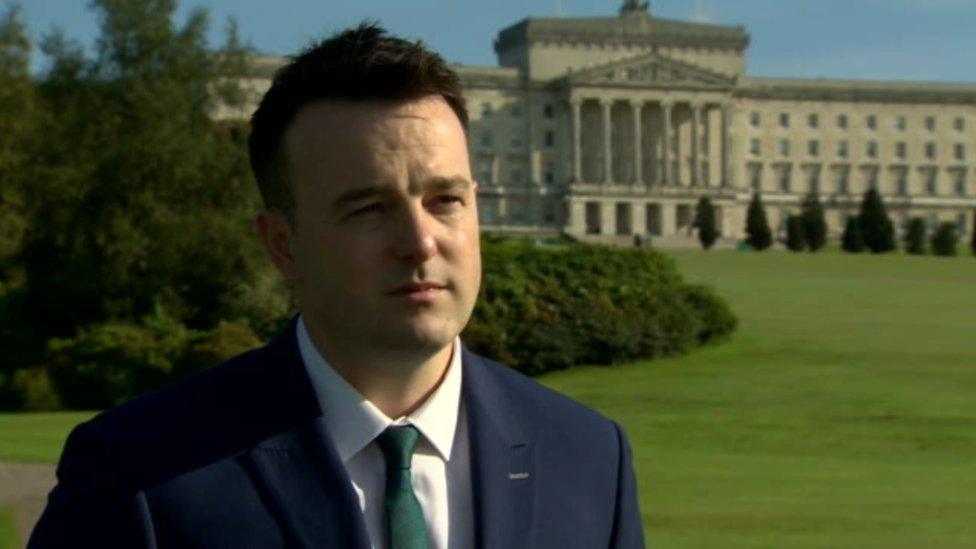Should Troubles generation of NI politicians move aside?
- Published
- comments
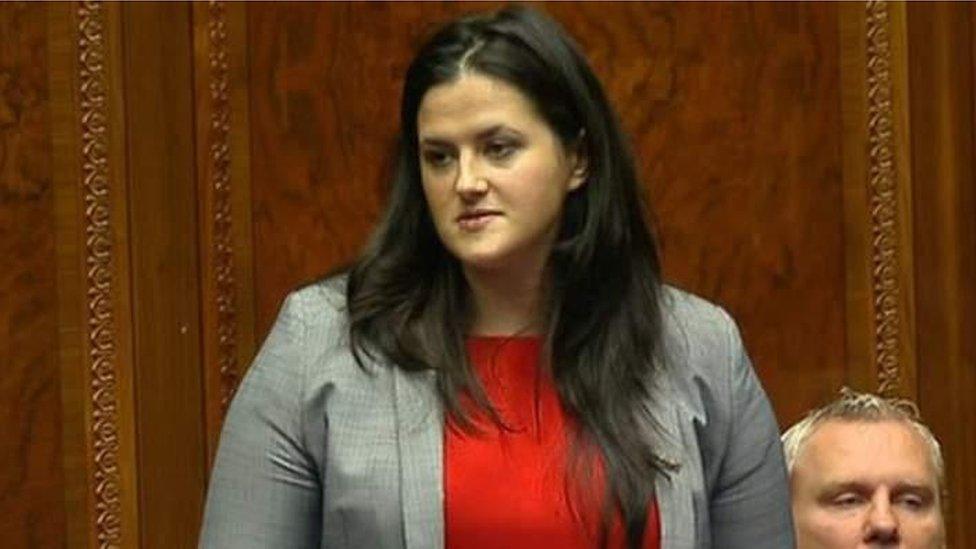
Claire Sudgen demanded a generational change in Northern Ireland politics
In mid September, when the future of Stormont was looking bleak, the 29-year-old independent unionist MLA Claire Sugden made an impassioned speech.
"This house of cards is falling, and good will come of that only if the jokers at the top come crashing down too and do not get up again," she declared.
The East Londonderry MLA went on to demand a generational change in politics, declaring her belief that "Northern Ireland will only truly move on when the people who were involved in the Troubles are no longer in politics".
She called for the Troubles generation to step aside "and encourage young politicians like Gary Middleton, Steven Agnew, Chris Lyttle, Claire Hanna, Megan Fearon, Sandra Overend and me to be the future of Northern Ireland and these institutions".
By picking MLAs from the DUP, the Greens, Alliance, the SDLP, Sinn Féin and the Ulster Unionists, Ms Sugden diplomatically avoided appearing to push one party agenda as opposed to another.
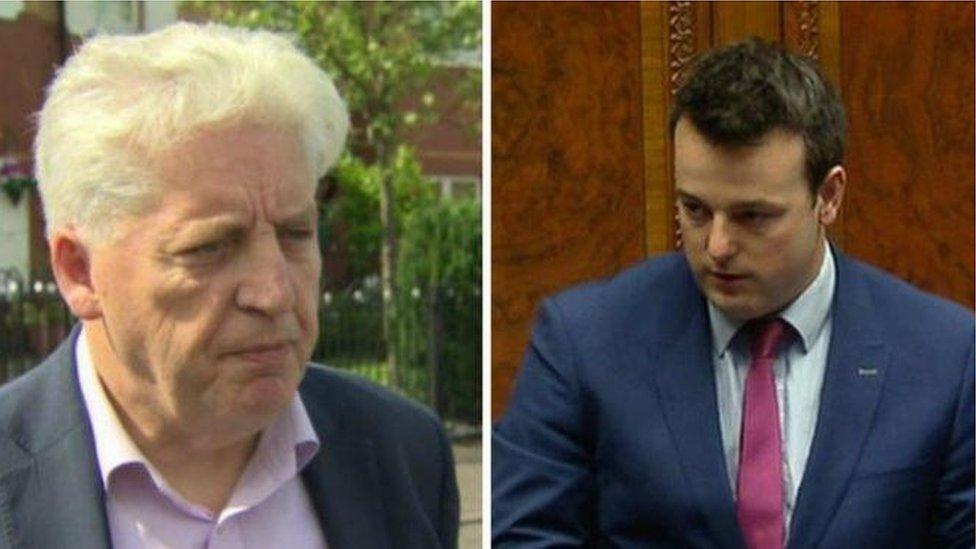
Colum Eastwood (right) is attempting to dislodge Alasdair McDonnell as SDLP leader
But what about her contention that politics will be transformed if only the old guard moves on?
Logically, it might seem that those who did not live through the worst years of the Troubles will, by definition, have a different perspective from those who did.
However, it would be wrong to assume too much.
Certainly when I spent a day with Niall Ó Donnghaile of Sinn Féin back in 2011 after he became Belfast's youngest mayor, I came away with the impression that he was every bit as much a committed Irish republican as his parents, both of whom had spent time in jail for IRA offences.
Is Stormont's problem a generation of people, or is it the historic circumstances in which they find themselves and the unwieldy power-sharing system they have to operate?
It's one of those chicken and egg type questions - easy to ponder, rather more difficult to answer for certain.
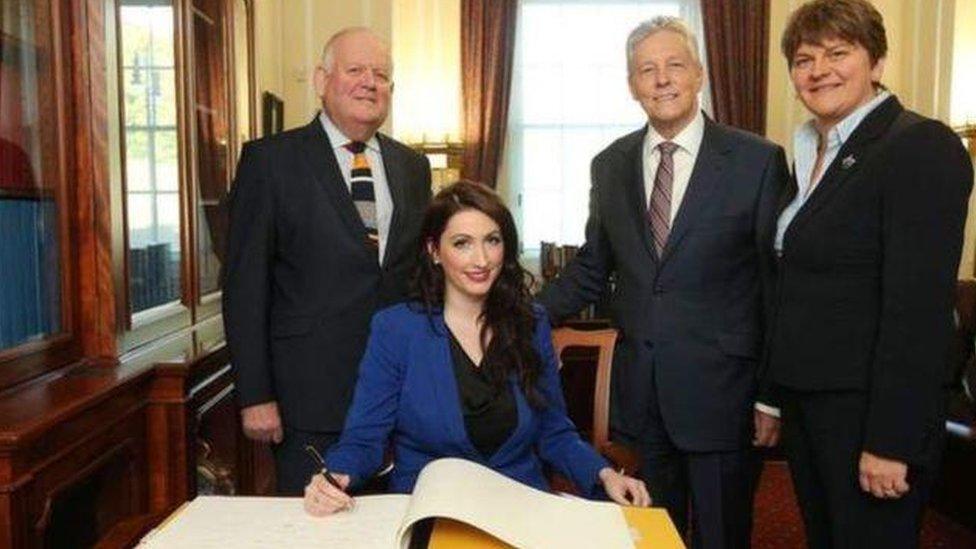
Emma Pengelly (seated) formerly worked as a special adviser in First Minister Peter Robinson's department
This week two young local politicians were in the headlines.
Colum Eastwood, 32, put himself forward as the candidate for a "new generation" when launching his bid to prise the SDLP leadership from Alasdair McDonnell.
Emma Pengelly, 35, made the move across from special advisor to become the new DUP MLA for South Belfast.
Accepting her appointment, Mrs Pengelly said she wanted to focus on bread and butter issues.
She acknowledged that Stormont was often a "difficult forum" but argued that whilst the "orange and green issues" often didn't get agreed, progress had been made on initiatives related to education, health and social deprivation that could change people's lives.
Perhaps these are the areas a younger generation will concentrate more on.
But both this week's rising young stars remain children of the Troubles.
In the Belfast Telegraph, Emma Pengelly talked about, external her family home being damaged by a bomb in Markethill in 1991.

Niall Ó Donnghaile of Sinn Féin was Lord Mayor of Belfast
Like Niall Ó Donnghaile, Mrs Pengelly has a family link to the conflict - her father is Noel Little, one of the 'Paris Three' who were arrested in the 1980s for arms trafficking for the loyalist Ulster Resistance group.
Meanwhile, as he concentrates on the future, Colum Eastwood faces questions about his decision back in 2012 to carry the coffin, external of a friend, Seamus Coyle, who was a former member of the Official IRA and the INLA.
Maybe we will see a generational shift. But the Troubles cast a long shadow and any change in politics is likely to be incremental, rather than Stormont wiping the slate clean.
- Published27 September 2015
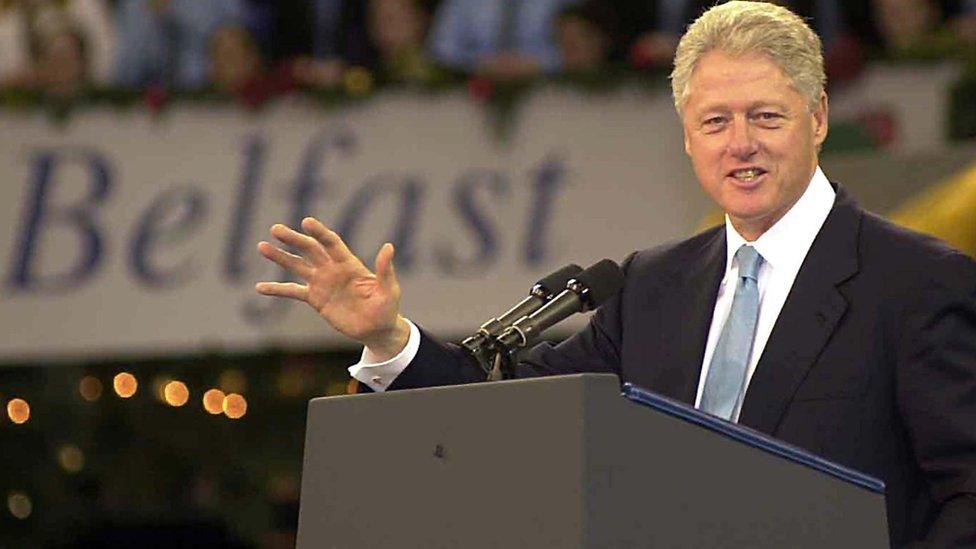
- Published28 September 2015
